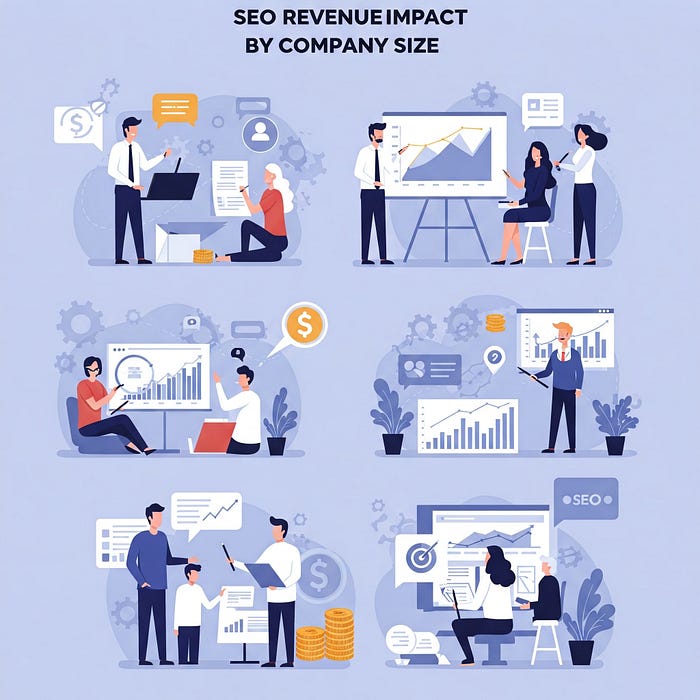- Get link
- X
- Other Apps
Data-Breakdown by Company Size
SEO isn’t just a traffic driver — it’s a revenue accelerator. But its impact varies dramatically by company size. Here’s what the data reveals:
SEO Revenue Contribution by Company Size
Startups & SMBs (1–50 Employees) → 14.6% of total revenue
Why? Limited ad budgets force reliance on high-ROI organic channels.
Key Insight: Early-stage companies that scale SEO see 3x faster growth than those relying solely on paid.
Mid-Market (51–500 Employees) → 9.2% of revenue
Why? Hybrid strategies (paid + organic) dominate, but SEO fuels predictable pipeline growth.
Key Insight: Companies that invest in technical SEO at this stage see 40% higher conversion rates.
Enterprises (500+ Employees) → 5.8% of revenue
Why? Diversified channels (paid, partnerships, brand) dilute % but not absolute value.
Key Insight: Top-performing enterprises treat SEO as a brand authority lever, not just a traffic source.
The Hidden SEO Growth Multiplier
For SMBs: SEO is the most efficient customer acquisition channel (CAC is 87% lower than paid).
For Mid-Market: Companies with a dedicated SEO strategist grow organic revenue 2.5x faster.
For Enterprises: SEO isn’t about % — it’s about defensive moat-building (60% of enterprise traffic is brand-driven by Y3).
Strategic Takeaway
SEO’s relative revenue contribution decreases as companies scale — but its absolute value skyrockets. The smartest companies don’t just optimize for today’s revenue — they are future-proof with SEO.
Your Turn:
Are you overlooking SEO as a growth lever if you're at a startup?
If you’re at an enterprise, is SEO just a “traffic” play or a brand authority tool?
Drop your thoughts below — let’s discuss!
- Get link
- X
- Other Apps

Comments
Post a Comment